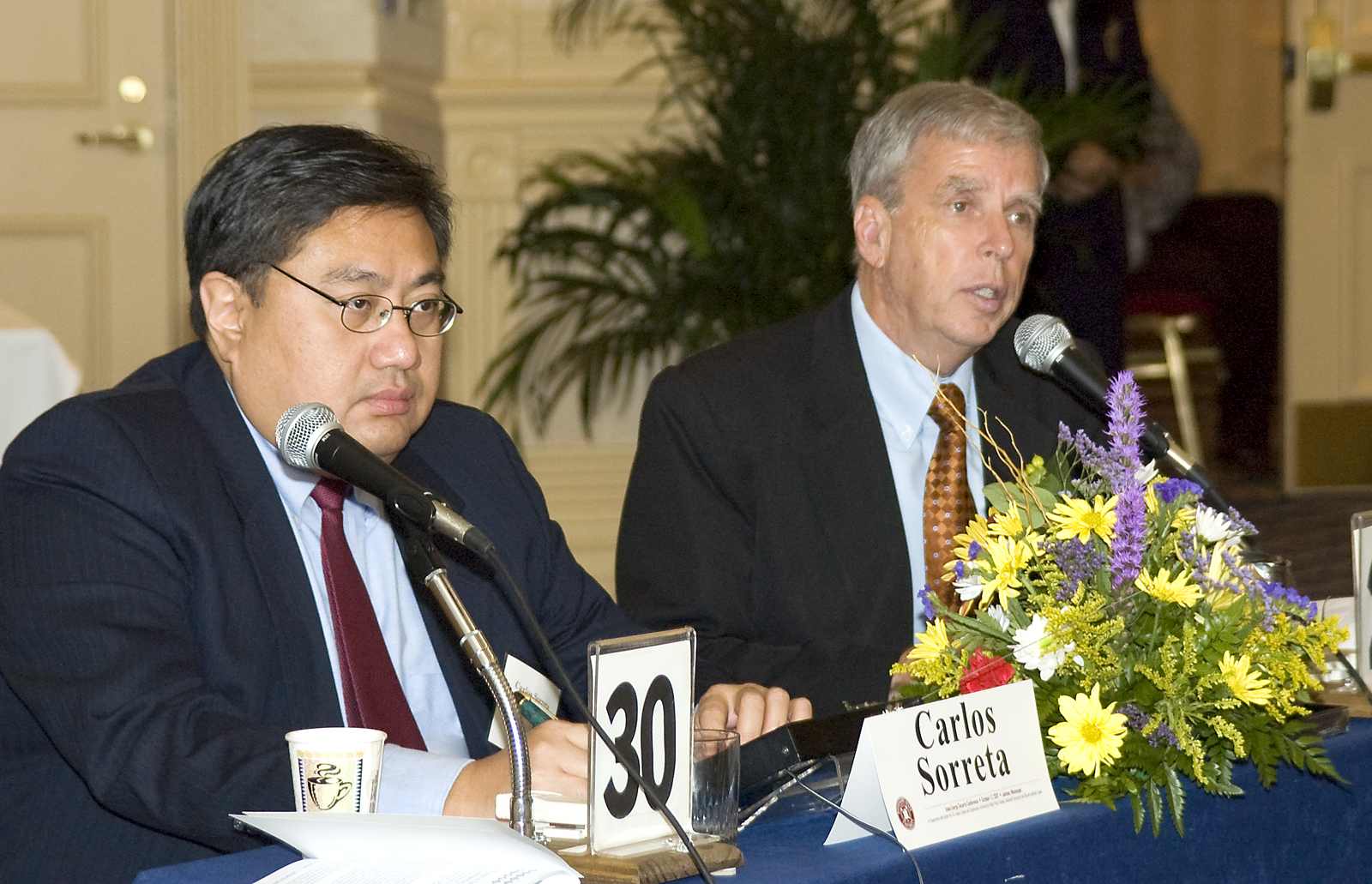Contact: Kenneth Billings

Photo by: Kenneth Billings
STARKVILLE, Miss.--With the safety of energy resources repeatedly threatened by terrorism and piracy, the international flow of those resources is an issue critical to U.S. national security.
During a Mississippi State-organized Jackson conference last week, more than 30 military and academic scholars from across the globe spent two days examining the topic. Representing 11 countries, including Japan, Malaysia and the Philippines, they focused particularly on the security of seaborne resources throughout the Middle East and Asia.
The university's Center for International Security and Strategic Studies, along with the Center for U.S. Japan Studies and Cooperation at Vanderbilt University and Japan's Okazaki Institute, co-sponsored the assembly.
MSU President Robert H. "Doc" Foglesong said the universities' role in organizing the conference collectively is part of a vision to increasingly emphasize the importance of global education and research. "The conference offered an outstanding educational opportunity in international relations for our students and faculty who were able to participate, and we're pleased with the global perspective," he observed.
Foglesong added, "While certainly not minimizing their impact or importance, I have been concerned for some time that the wars in Iraq and Afghanistan may be unduly diverting our attention from larger aspects of the worldwide threats posed by terrorism, piracy or the inevitable tensions associated with the shifting balance of economic power. No nation can afford to neglect very important parts of the world such as the Asia-Pacific Region, with its likely impact on all of our futures."
The region is among the world's most economically dynamic, based, predominantly, around shipping. While India, China, Japan, Korea, and Taiwan are considered to be the main engines of economic growth, they must rely heavily on seaborne energy imports coming mainly from the Middle East.
Asia-bound ships traveling from the Persian Gulf first must pass through the narrow Straits of Malacca before entering the South China Sea. From there, the sea lanes branch northwards to East Asia and the U.S. West Coast; southwards to Singapore and Australia.
In the various conference sessions at the Marriott Hotel, participants examined such specific areas as the viability of the international shipping industry, vulnerability of specific types of ships to attack, port security issues, and the economic consequences of disruptions to the energy supply chain.
"This conference was very meaningful," said Baeksoon Lee, counselor for the South Korean Embassy. "It brought together a lot of important policymakers, and academic and military scholars and provided us a format to exchange views and brainstorm."
Retired Navy Adm. Thomas Fargo and Vice Adm. Eduardo Santos, president of the Phillipine-based Maritime Academy of Asia and the Pacific, were among those making presentations.
Fargo, former commander of the United States Pacific Command, stressed the importance of securing Asian sea lanes, while Santos provided details on the Abu Sayaff Group, an Islamic separatist organization based in the southern Phillipines, and their continued threat to maritime energy transport through piracy and terrorism.
Prior to adjourning, participants approved a list of recommendations for future actions designed to build on advances made during the 2006 and 2007 conferences. Among them are calls for:
--Concerned governments to better coordinate threat and vulnerability risk assessments of current and emerging challenges to energy flows, since disruptions could precipitate economic disasters; and
--MSU to sponsor a third conference aimed at broadening dialogue among the responsible international stakeholders.